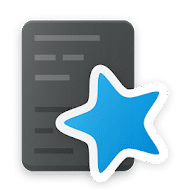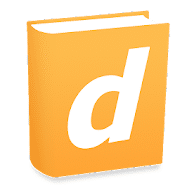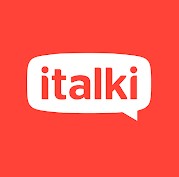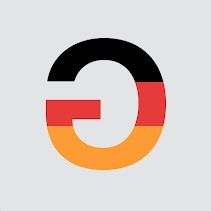
The 17 Best Apps for Learning German in 2024 [Tested and Reviewed]
The best apps for learning German don’t just throw words and rules at you and hope that you remember them.
They turn German learning into an engaging experience.
I’ve been studying German for years, and I’ve tested too many apps to count.
Here’s my list of the best of the best apps for learning German whether you’re a serious student, a casual learner or a Germany-bound traveler.
Contents
- Top Free Apps for Learning German
- Top Paid Apps for Learning German
- 7. Best for Speaking Practice: Seedlang
- 8. Best for Learning with Native German Videos: FluentU
- 9. Best for Immersive Learning: Rosetta Stone
- 10. Best Flashcard App: Memrise
- 11. Best All-in-One App: Busuu
- 12. Best Vocabulary Builder: Drops
- 13. Best for Young Learners: Learn German by MindSnacks
- 14. Best Tutor Support: italki
- 15. Best for Podcasts: GermanPod101
- 16. Best for News: Der Tagesspiegel
- 17. Best for Grammar Training: Grammatisch
Top Free Apps for Learning German
1. Best CEFR-Based App: DW Learn German
The major German broadcaster Deutsche Welle also has its own learning app following the CEFR standards, with content ranging from beginner to intermediate.
Based on your level, you’ll be assigned fun interactive exercises and videos. The lessons primarily train you in conversational skills and vocabulary you’d encounter in daily scenarios, with frequent assessments to make sure you understand the content.
DW also offers additional courses and materials for extra learning, including podcasts and downloadable PDFs, that you can access on the main website
Pros:
- Content is organized by level
- Additional video learning series
Cons:
- Some questions are presented entirely in German (can be challenging for beginners)
- Advanced content may still feel a bit too easy
2. Best for Busy Learners: Duolingo
Boasting over 500 million users, Duolingo is clearly a very popular choice. Its short and sweet lessons are ideal for those with a busy schedule.
Lessons are presented in a “tree” based on level and topic, with a certain order. You’ll be asked to take multiple-choice questions, practice speaking aloud or translate phrases.
To ensure you don’t rush your learning, there’s also a “hearts” system. When you deplete all hearts due to making mistakes, you’re expected to review the material to regain them.
See our full review of Duolingo.
Pros:
- Uncomplicated and quick language lessons
- Good for learning basic vocabulary (up to A1 or A2 German level)
Cons:
- Repetitive exercises
- Doesn’t teach grammar or sentence construction
3. Best for Self-study: Anki
Anki is an excellent flashcard tool for learning German vocabulary through SRS (spaced repetition system). Flashcards can be enhanced with images, sound files and even HTML.
You can make your own flashcards or download user-made decks, which sometimes contain thousands of words. You can find nearly anything you need, from German textbook-based word lists to flashcards with translations.
During studying, learners have to rate the ease of recall for each card. This determines the interval after which they’ll be served up again.
See our full review of Anki.
Pros:
- Access to plenty of content (which can be updated over time)
- Enables user to create their own flashcards
Cons:
- Not very user-friendly
- Limited to flashcards
4. Best for Reading Practice: Hootlingo

This app lets you learn German through written and narrated stories. The content is organized by level, and they cover diverse topics but mainly focus on mundane scenarios native to Germany.
You can both read the text and listen to the narration, with the option to slow down the audio. After every story, you’ll get a short quiz to test your understanding.
The developers release new stories weekly, so even if you bust through all the current content, you can simply wait for more!
Pros:
- Good for practicing German listening and reading skills
- Audio features (including a slow-down option) are helpful additions
Cons:
- Stories are entirely in German (with no instant translation function)
- Only available on Android
5. Best for Learning Articles: Der Die Das
The aptly-named Der Die Das lets you look up a German word and see its correct article—no fuss or fluster. It also explains guidelines for “predicting” which article goes with a certain word.
Another helpful feature would be a dictionary that defines roughly 17,000 nouns. You can even compile consistently problematic nouns into a list for later review.
For focused review, the app offers a simple “guess the article” game for a selection of random nouns.
Pros:
- Addresses one of the more frustrating aspects of the German language
- Unfettered interface
Cons:
- Dictionary feature doesn’t include English translations
- Limited in scope
6. Best Dictionary: dict.cc
While dict.cc is offered for other languages, it’s primarily known as a comprehensive English-German dictionary.
Once you look up a word (either in German or English), you get a whole list that shows the word side-by-side with its translations in different contexts. The German version is also supplied with its appropriate gender pronoun.
You can also look up common English or German phrases. It’s a quick way for you to learn both formal and casual expressions that you can use in conversation.
Pros:
- Comprehensive explanations for vocabulary
- Can teach phrases and expressions alongside specific words
Cons:
- Premium version doesn’t offer much
- Basic free version would benefit from more learner-tailored features
Top Paid Apps for Learning German
7. Best for Speaking Practice: Seedlang

Price: Free (limited access), $ premium version
Seedlang focuses on improving your German speaking and listening skills.
It teaches you through step-by-step “video clip flashcards.” These feature native speakers saying a sentence out loud, with optional translations. Then you have to repeat the German you heard or translate an English phrase into German.
After you submit your spoken attempt, you can compare it to the original audio and see exactly where you might have made a flub.
Seedlang provides a full breakdown of each word down to its grammar.
Pros:
- Provides some grammar instruction
- Enjoyable and engaging format and content
Cons:
- May not suit non-visual learners
- No generated feedback for recordings
8. Best for Learning with Native German Videos: FluentU
Price: $$ subscription, free trial available
FluentU immerses you in authentic German media with learning tools to help you build your vocabulary and comprehension skills. You’ll find short video clips from German movies, TV shows, news segments and more.
Each video comes with a transcript, interactive subtitles and a personalized quiz on the key vocabulary. You can hover over or click on any word in the subtitles to see key information such as the translation, part of speech and example sentences.
This program teaches you the language the way it’s actually used in real life by native speakers. The flashcard feature and exercises will help you commit new vocabulary to memory so you can use it in your future German conversations.
Pros:
- Uses authentic German media for immersive learning
- Teaches German language in context
Cons:
- Not all features are available offline
- Not tailored for casual learners who prefer game-like features
9. Best for Immersive Learning: Rosetta Stone
Price: $$ subscription, free trial available
Rosetta Stone has a very immersive approach: the software aims to teach the new language without any translation. You’ll learn new words and phrases through images and hear them pronounced by native speakers.
Rosetta Stone also features speech recognition functionality to teach you correct pronunciation.
Apart from the digital material, Rosetta Stone offers a platform where you can schedule lessons with live German tutors. This is a nice bonus feature for those who don’t merely want to practice on their own.
See our full review of Rosetta Stone.
Pros:
- Focuses on the essentials of German language communication
- Clean and polished interface
Cons:
- Doesn’t offer much grammar instruction
- Expensive
10. Best Flashcard App: Memrise
Price: Free (limited access), $ premium subscription
Memrise aims to anchor knowledge in your brain through mnemonics. Words are combined with images and/or put into (often ridiculously funny) context to make them less “forgettable.”
For example, to learn bitte (please), you’ll be shown a picture of a person eating a chocolate bar. A second person is asking “Can I have a bitte, please?”
Lessons also introduce new words with a video of a real German speaker saying it. You might then have to type out the word or answer a multiple-choice question.
See our full review of Memrise.
Pros:
- Interesting vocabulary-encoding method
- Videos are engaging
Cons:
- Limited grammar instruction
- Needs to be supplemented with other resources
11. Best All-in-One App: Busuu
Price: Free (limited access), $ premium subscription
Busuu bases its courses on the CEFR framework and covers all areas of language acquisition (reading, writing, speaking, listening).
Lessons are based on key vocabulary pronounced by native speakers, followed by applying these. You can also do speaking or writing practice (with optional editing by other members!) and practice your pronunciation by recording phrases.
The community aspect of Busuu makes it highly worth checking out for those who like to connect with people while pursuing their interests. It even hosts its own video chat platform.
See our full review of Busuu.
Pros:
- Strong community-based features
- Very user-friendly
Cons:
- Exercises can feel tedious
- Could get unreliable feedback from the community
12. Best Vocabulary Builder: Drops
Price: Free (limited access), $ premium version
For five minutes a day, Drops teaches you the essentials of German vocabulary in a fun and immersive way.
The design is rather minimalist and visually appealing. When teaching words, Drops uses text, images and audio to ease them into your brain. The sessions themselves are game-like in nature, requiring you to drag-and-drop answers and tap away on your screen.
Vocabulary is categorized into different topics, touching upon matters such as food, colors, family members, nationalities and so forth.
See our full review of Drops.
Pros:
- Short daily lessons
- Minimalist, intuitive design
Cons:
- Low variety in exercises
- Lesson cap can be too limiting for some learners
13. Best for Young Learners: Learn German by MindSnacks
Summary: A game app that includes nine different games to help you learn German words and phrases.
Price: Free (limited access), $ premium version
MindSnacks lets you practice your German with the help of nine colorful games.
Each game is centered around a certain theme, like family, food or school. Beforehand, you’re given a list of vocabulary with audio to practice.
MindSnacks’ look is done so well that it sometimes feels like it’s mainly a game that teaches German on the side! For example, in one game, there’s water with a cute fish in the background, and the water is slowly draining, functioning as a timer.
Pros:
- Graphics and exercise format encourage memorization
- Simple interface
Cons:
- Free version is limited (access to one lesson out of 50)
- Only available on iOS
14. Best Tutor Support: italki
Price: $ to $$, depending on the teacher
This app connects you with native teachers from all over the world sharing their languages, dialects and cultures. You can choose who you want to learn from, so the price depends on each different teacher.
The video lessons can be tailored to your needs, so if you want to learn conversational German for travel, if you need to speak German for business or if you want to pass a specific test, you can find the help you need.
See our full review of italki.
Pros:
- Presence of tutor and community can spur motivation
- More personalized and flexible learning
Cons:
- Process of booking tutors and lessons can be cumbersome
- Prices and teacher quality can vary
15. Best for Podcasts: GermanPod101

Pricing: Free (limited access), $ for premium content
The LanguagePod101 series provides podcast-style lessons that allow you to learn German on the go.
The most common lessons have a dialogue in which you listen to two or more people speaking German, and then each word and grammar point is broken down by the hosts. The app also has word lists, flashcards and slideshows to help you train your vocabulary after you listen to the lessons.
The Premium Plus subscription offers one-on-one guidance from your own personal teacher.
See our full review of GermanPod101.
Pros:
- Hosts are fun to listen to
- Particularly useful for listening and speaking skills
Cons:
- Content may be too easy for advanced learners
- Exercises are a bit lacking in variety
16. Best for News: Der Tagesspiegel
Pricing: Free (limited access), $$ plus version
Der Tagesspiegel is a popular German-language newspaper, and it has its own app to let you catch the news whenever, wherever. The interface presents articles in a straightforward, no-frills manner, making it very accessible.
Though it’s not necessarily tailored for learners, it’s still a great authentic resource for upper-level learners to practice their reading skills. You can quickly learn plenty of vocabulary related to different topics. It’s also an easy way to stay up-to-date and informed on current matters in Germany.
Pros:
- Clean and accessible interface
- Great for German reading practice and learning bits of German culture
Cons:
- Lack of bonus features that make reading more interactive
- Not learner-tailored, works best for learners with quite advanced German knowledge
17. Best for Grammar Training: Grammatisch
Pricing: Free for some features, $ plus subscription
As you can tell from its name, Grammatisch is solely focused on teaching core German grammar topics, from plural nouns to declensions.
All the lessons are categorized into different levels. Each one includes a brief overview of the topic, which may include lists or tables of examples. You can then take a series of quick fill-in-the-blank exercises that test your knowledge.
Because of its straightforward format, it works very well as a grammar practice resource for daily review.
Pros:
- Works well as a complement to other German learning apps
- Organized and straightforward format
Cons:
- Somewhat pricey plus version
- Exercises can feel a little “barebones” and would benefit from more interactivity
We bet that no matter your learning style, there’s a perfect German learning app (or apps!) in here for you. Just download and start learning!
Download: This blog post is available as a convenient and portable PDF that you can take anywhere. Click here to get a copy. (Download)
















